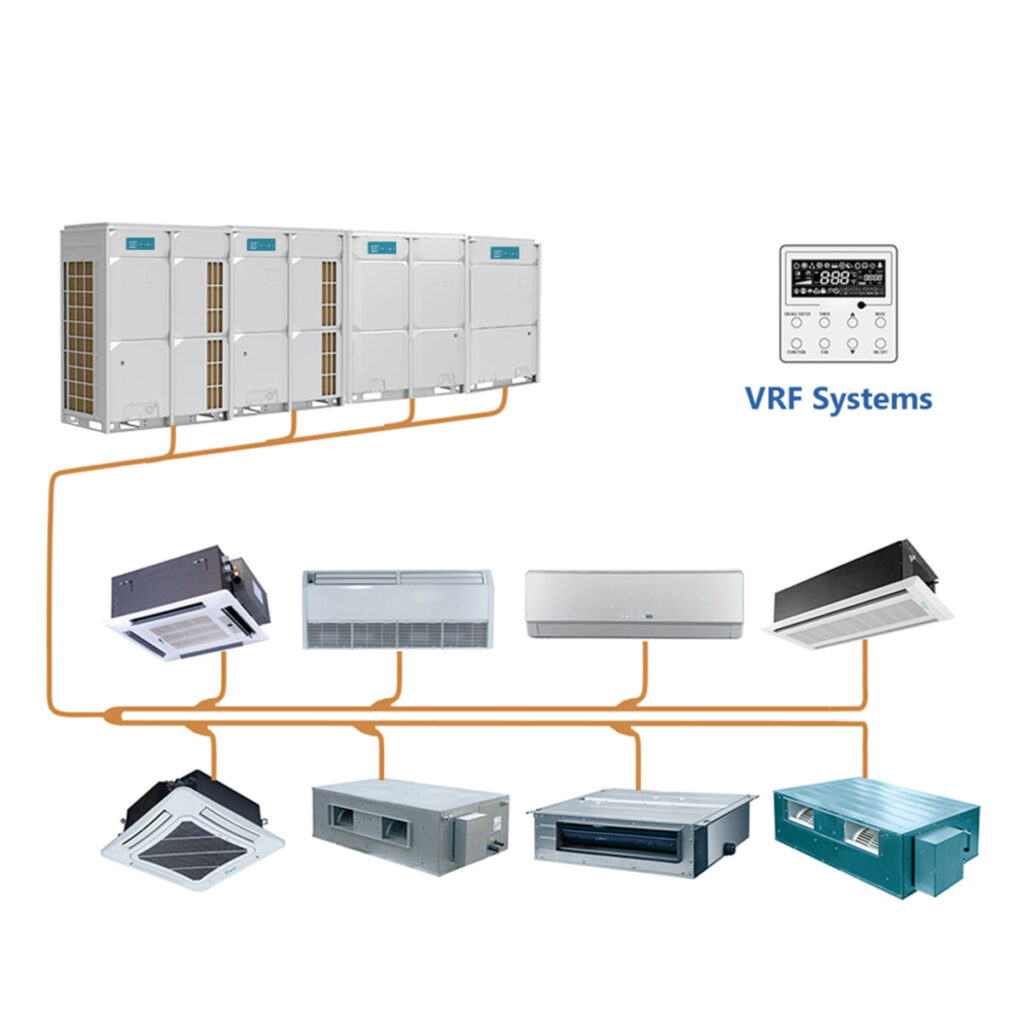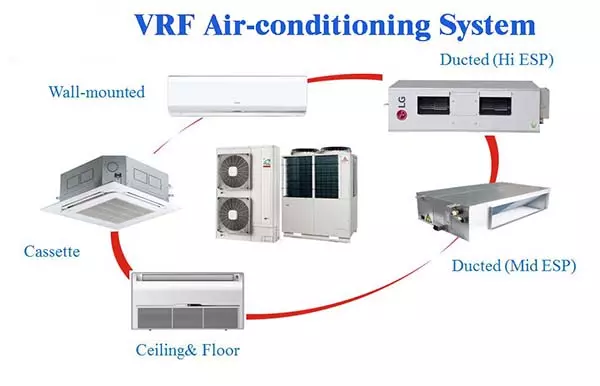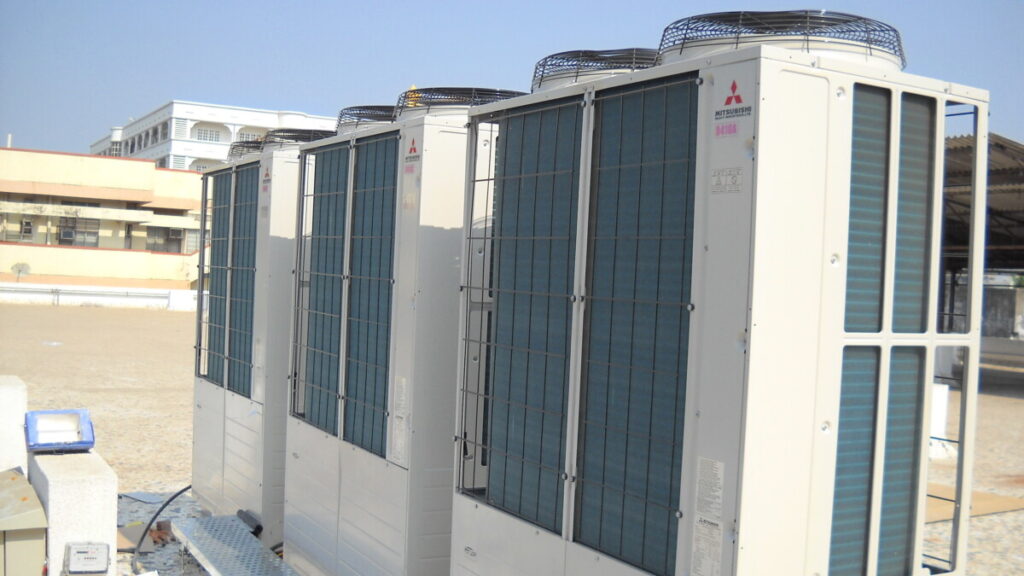In the realm of modern air conditioning technology, Variable Refrigerant Flow (VRF) stands tall as a symbol of efficiency, versatility, and comfort. Born out of the innovative spirit of Daikin Industries Ltd. in 1982, VRF has since revolutionized the way we cool and heat our spaces. Often interchangeably referred to as Variable Refrigerant Volume (VRV), this ingenious system epitomizes the marriage of cutting-edge engineering and environmental consciousness. But what exactly is VRF air conditioning, and why should you consider it for your premises?

What is VRF Air Conditioning?
At the heart of VRF lies its adaptability, facilitated by its ability to vary refrigerant flow based on the specific requirements of individual spaces within a building. Imagine an outdoor unit seamlessly connected to multiple indoor units, each operating autonomously. This decentralized approach, known as zonal control, empowers users with unparalleled flexibility in managing temperatures throughout their property.
VRF systems come in two primary variants: heat pump and heat recovery. While heat pump systems toggle between heating and cooling modes, heat recovery systems exhibit a more sophisticated capability—they can simultaneously heat and cool distinct zones within a building. This dual functionality not only enhances comfort but also maximizes energy efficiency by harnessing waste heat from cooled areas to fulfill heating demands elsewhere.
How Does VRF Air Conditioning Work?
The secret to VRF’s prowess lies in its utilization of inverter compressors. Unlike traditional air conditioning systems with fixed-speed compressors, VRF systems boast dynamic compressors capable of adjusting their speed—thus, refrigerant flow—in response to precise temperature cues. Each indoor unit communicates its temperature requirements to the system, prompting the compressor to modulate its output accordingly. This intelligent coordination ensures optimal comfort levels while minimizing energy consumption and operational costs.

Benefits of VRF Air Conditioning
The advantages of VRF air conditioning extend far beyond mere temperature control:
- Versatility: VRF systems accommodate diverse heating and cooling needs across various spaces within a building. Coupled with an array of indoor unit options, they cater to a broad spectrum of applications, from residential complexes to commercial establishments.
- Customized Comfort: Say goodbye to hotspots, cold drafts, and humidity fluctuations. VRF’s precision flow distribution ensures consistent conditions tailored to individual preferences, regardless of occupancy levels or room functionalities.
- Ease of Installation: Unlike cumbersome ducted HVAC systems, VRF installations are lightweight, compact, and minimally invasive. This makes them ideal for retrofitting existing structures without compromising architectural integrity.
- Durability and Reliability: By operating only when necessary and under partial load conditions, VRF systems experience less wear and tear compared to traditional counterparts. While regular maintenance is recommended, the inherent resilience of VRF minimizes the likelihood of breakdowns and extends operational lifespan.

Is VRF Right for Your Premises?
If your commercial or residential space demands energy efficiency, personalized climate control, and reduced noise emissions, VRF could be the solution you’ve been seeking. Whether you’re renovating an older building or constructing a new facility, the adaptability and performance of VRF air conditioning make it a compelling choice for the environmentally conscious and comfort-oriented consumer alike.
Variable Refrigerant Flow (VRF) air conditioning represents a paradigm shift in the realm of climate control technology. With its ability to seamlessly adjust refrigerant flow, deliver customized comfort, and optimize energy usage, VRF stands as a testament to human ingenuity and environmental stewardship. As we continue to prioritize sustainability and efficiency in our built environments, VRF emerges as a beacon of innovation—a cornerstone of a greener, more comfortable future.

